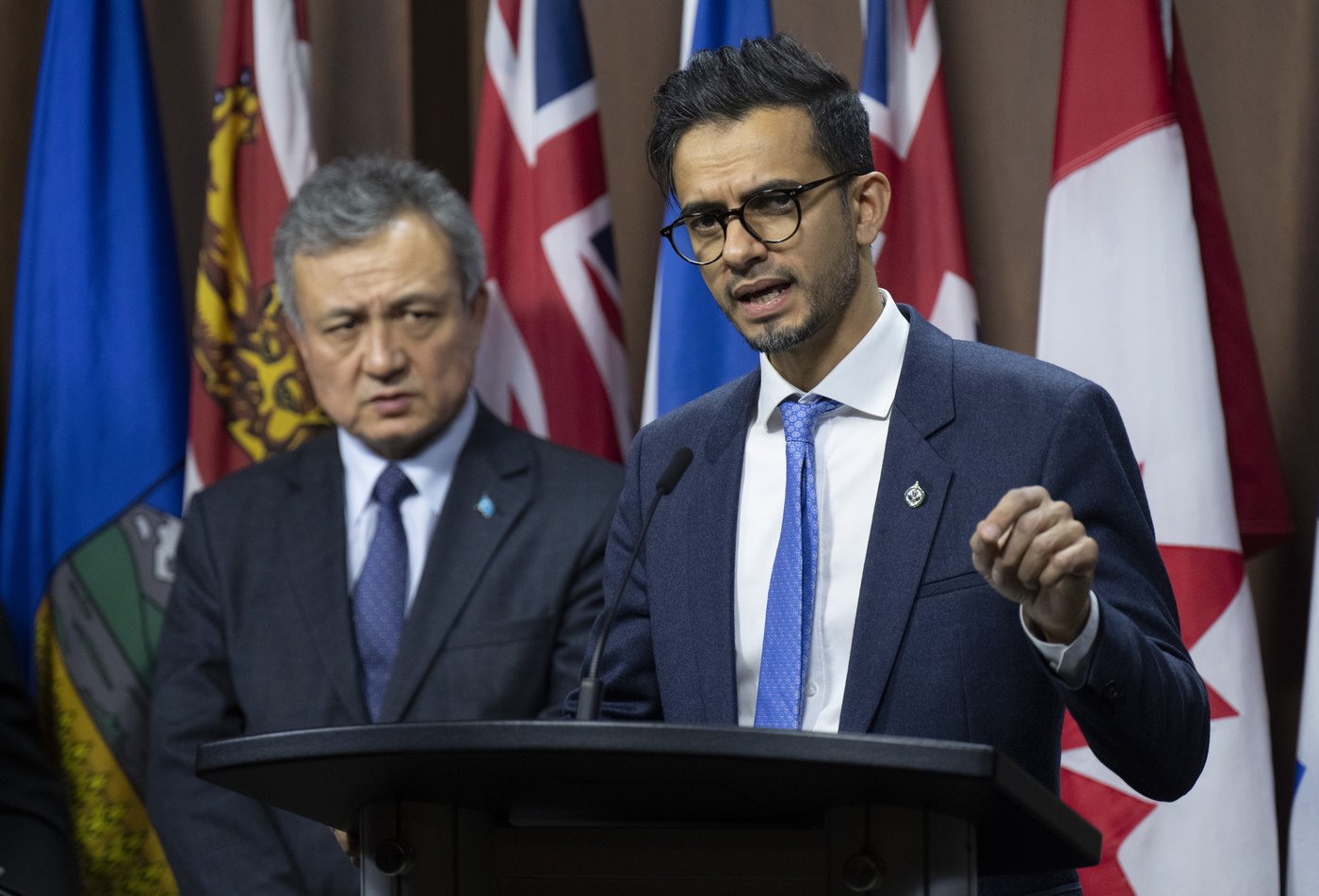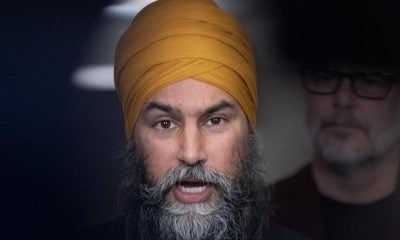A Liberal MP from Montreal says it is for the country to debate whether the notwithstanding clause should be on the books.
Sameer Zuberi’s comments come after a week where the Bloc Québécois forced parties in the House of Commons to vote on whether they felt provinces had the legitimate right to use the constitutional power however they wanted, including pre-emptively.
Both the Liberals and federal New Democrats voted down the motion to defeat it, while the Conservatives supported the Bloc’s call.
The notwithstanding clause is a provision in the Charter of Rights and Freedoms that allows provincial and federal governments to pass laws that circumvent parts of the Charter for a period of up to five years.
While it’s not new, debate around its use has heated up in recent years as provinces such as Ontario and Quebec have invoked it pre-emptively, effectively preventing anyone from launching a legal challenge in court.
Quebec Premier Francois Legault’s government used it pre-emptively to usher in his government’s secularism law, known as Bill 21, which prohibits public servants in positions of authority from wearing religious symbols on the job.
“When you have the usage of the notwithstanding clause being enacted in such a way that it eliminates rights from people, then it calls into question the very clause itself,” Zuberi said.
Prime Minister Justin Trudeau has criticized the pre-emptive use of the provision and during a 2021 interview told The Canadian Press he shares the disdain his father, former prime minister Pierre Trudeau, had for its place in the charter. It was a demand from provinces the elder Trudeau acquiesced to during the 1982 constitutional negotiations.
But that is as far as the current prime minister has gone in his criticisms. Zuberi stopped short of directly calling for the Liberal government to reopen the Charter, saying only “there should be a debate within society, and also within governments on this issue.”
Asked about the possible implications of revisiting contentious constitutional negotiations, particularly when Canada is facing issues such as high inflation, Zuberi said “just because this subject is complicated, doesn’t mean that we should shy away from approaching it.”
Zuberi currently sits as a backbench member of the government, first elected in 2019 in the reliably Liberal riding of Pierrefonds—Dollard in Montreal.
As the only Muslim MP in Quebec, Zuberi said he knows his comments around Bill 21, which he opposes, are perceived differently.
And although he believes Quebecers’ view of the law is changing, he believes it is important to tell those affected that they could be in for a long battle.
Earlier in the week, he told a Senate committee studying the issue of Islamophobia that he sees the five-year sunset rule on the clause’s application as a chance for the law to be revisited, expressing hope it could fall in the next 10 to 15 years.
“We need to be realistic and not pretend things aren’t as they are,” he said, saying if the law does not fall through the courts, the only other recourse is at the ballot box.
The Quebec Court of Appeal is expected to release a ruling on the constitutionality of Legault’s use of the notwithstanding clause to enact the law, challenged by several civil liberties groups and the National Council of Canadian Muslims. A 2021 ruling by Superior Court Justice Marc-André Blanchard said while the law had “cruel” and “dehumanizing” consequences, it was mostly legal.
Trudeau has committed to intervene in the case if it arrives at the Supreme Court of Canada.
National Council of Canadian Muslims CEO Stephen Brown said Friday he believes the court challenge will be successful, but said it is “absolutely necessary” to convene lawmakers, activists and other members of civil society to examine the clause itself.
Zuberi said his message when he speaks to those affected by the legislation is to stay engaged.
“We obviously hope that legislation will fall through the courts in the short term, but it’s possible that this might not happen” he said.
“People have to understand that and be prepared for that midterm struggle. And I think it’s a disservice for those who are directly impacted to not understand that.”
This report by The Canadian Press was first published Feb. 18, 2023.
Related


































